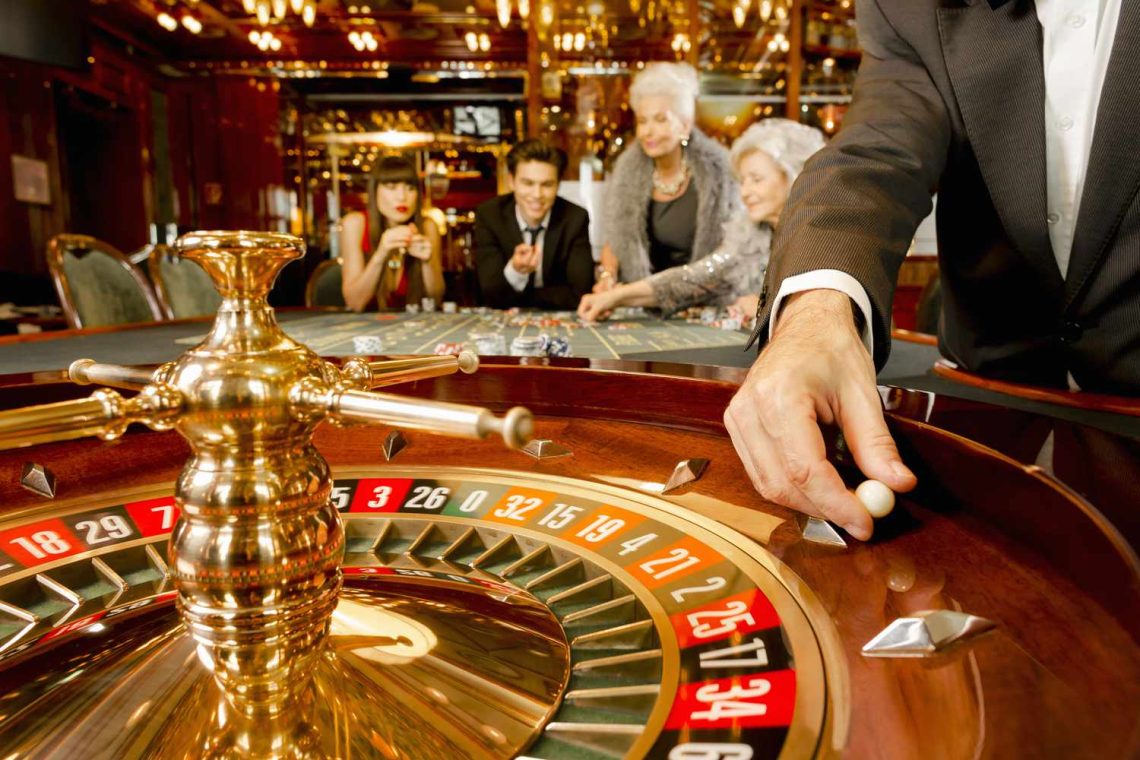Casino games are inherently associated with the excitement of winning money, yet intriguingly, the process itself can be deeply addictive, even without significant financial wins. Platforms like Playzilla masterfully illustrate how the gaming experience, beyond just financial outcomes, becomes compelling enough to draw players back repeatedly. This article explores the fascinating psychological and emotional factors that make the act of gambling itself addictive, even when players are not consistently winning substantial prizes.
The Attraction Beyond Winning
At first glance, gambling’s appeal might seem primarily driven by the chance of financial gain. However, the reality is far more nuanced. The underlying psychological elements—anticipation, engagement, and excitement—often surpass the allure of monetary wins.
The Thrill of Anticipation
One of the most powerful psychological factors driving the addictive nature of gambling is anticipation. Players feel intense excitement in the moments leading up to each spin, bet, or card dealt. This anticipation, regardless of the outcome, releases dopamine—a neurotransmitter associated with pleasure, motivation, and reward.
Dopamine and the Pleasure of Uncertainty
Dopamine release isn’t exclusively tied to winning. In fact, uncertainty and unpredictability greatly amplify dopamine production. The uncertain nature of gambling outcomes—knowing there’s a chance to win even without a guaranteed result—creates a continuous cycle of excitement and emotional engagement.
Psychological Mechanics Behind Gambling Addiction
Understanding the psychological mechanisms behind the addiction to the gambling process itself helps clarify why players return repeatedly to casinos even in the absence of significant financial success.
Near-Misses and their Powerful Influence
Casinos strategically incorporate near-misses into games, where outcomes fall just short of a win. These near-misses stimulate intense emotions, leading players to believe they’re “close” to success. Such occurrences significantly enhance player motivation, creating a strong psychological incentive to continue playing.
Intermittent Reinforcement: The Power of Unpredictable Rewards
Intermittent reinforcement, where rewards occur unpredictably rather than consistently, strongly reinforces gambling behaviors. This randomness mirrors psychological patterns observed in addictive behaviors, where the unpredictability of rewards significantly enhances behavioral repetition.
The Role of Game Design in Addiction
Game design significantly influences the addictive quality of gambling, turning the process itself into the main attraction.
Immersive Visual and Audio Elements
Online casinos use immersive visual graphics, engaging animations, and enticing audio effects to heighten emotional involvement. These sensory stimuli profoundly enhance the gaming experience, creating enjoyable and memorable moments that players seek repeatedly.
Gamification and Reward Structures
Gamification elements such as levels, achievements, and leaderboards enhance player engagement. Casinos create reward structures independent of monetary winnings, incentivizing continued participation through virtual recognition and status achievements.
Emotional and Social Dimensions of Gambling
Beyond game mechanics, the emotional and social dimensions of gambling significantly contribute to its addictive nature.
Social Interaction and Community
Platforms increasingly integrate social features allowing players to interact, compete, and share experiences. This social dimension fulfills emotional needs for connection and community, creating an additional layer of engagement independent of winning money.
Escapism and Emotional Relief
Gambling provides an emotional escape from daily stresses, responsibilities, and negative feelings. The absorbing nature of gambling sessions can temporarily relieve anxiety, loneliness, or boredom, further incentivizing continued play even in the absence of significant wins.
Cognitive Biases Reinforcing Addiction
Several cognitive biases reinforce gambling’s addictive qualities, making it challenging for players to disengage even when financial gains are minimal.
Illusion of Control
Gamblers frequently experience an illusion of control, believing their actions influence outcomes that are fundamentally random. This cognitive bias increases emotional investment in gambling sessions, motivating continued engagement despite frequent losses or minimal returns.
Gambler’s Fallacy
The gambler’s fallacy—the belief that past outcomes influence future results—often drives continued betting. Players mistakenly assume they’re “due” for a win, fueling persistent gambling even in the face of prolonged losing streaks.
Sunk Cost Fallacy
Players subject to the sunk cost fallacy continue gambling after losses to justify previous expenditures. Emotional investment in recovering losses drives players to persistently gamble, significantly contributing to addictive behavior.
Responsible Gambling and Mitigation Strategies
Recognizing gambling’s psychological appeal emphasizes the importance of responsible gaming measures to protect players from addiction.
Setting Limits and Boundaries
Platforms encourage responsible gambling practices, providing tools to set personal spending limits, betting caps, and time restrictions. These measures help players maintain control, reducing the risk of excessive engagement.
Education and Awareness
Educating players about the psychological mechanisms behind gambling addiction fosters informed participation. Awareness campaigns and transparent communication of gambling risks equip players with the knowledge necessary to manage their behavior responsibly.
The Complexity of Gambling Addiction
The addictive nature of gambling isn’t merely about chasing financial rewards—it’s deeply intertwined with psychological, emotional, and social dynamics. The complexity of these interrelated factors highlights the necessity for nuanced approaches to managing gambling behaviors.
Psychological Counseling and Support
Professional psychological support, including cognitive-behavioral therapy (CBT), helps players recognize addictive patterns, challenge cognitive biases, and develop healthier coping strategies. Therapeutic interventions address underlying emotional triggers and reinforce sustainable, healthy behaviors.
Casino’s Example: Balancing Enjoyment and Responsibility
Casino exemplifies the balance between delivering engaging, exciting gambling experiences while promoting responsible gaming.
Engaging Yet Responsible Design
Casino employs game designs that captivate players through engaging visual and interactive experiences, yet simultaneously integrates responsible gambling features directly into its platform, demonstrating a commitment to player welfare.
Proactive Player Support
Platforms proactively support players by identifying problematic gambling behaviors early. Real-time monitoring and targeted interventions, such as offering responsible gaming resources or temporarily limiting access, significantly mitigate addiction risks.
Conclusion: Appreciating the Process Without Dependency
Gambling’s addictive nature extends far beyond monetary wins, driven by profound psychological mechanisms such as dopamine release, intermittent reinforcement, social engagement, and cognitive biases. Understanding these factors equips players, casinos, and regulators with essential insights to foster responsible, enjoyable gambling practices.
Platforms exemplify how casinos can responsibly harness the natural appeal of the gambling process, ensuring players derive genuine enjoyment without becoming excessively dependent. By balancing immersive, engaging gaming experiences with proactive responsible gambling measures, casinos ensure sustainable entertainment and player safety.
Ultimately, recognizing and responsibly managing the psychological attraction of gambling enhances player experiences, protects against addiction, and promotes a healthy relationship with gambling activities.






